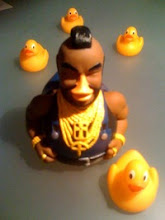Laos was a haven after the last few weeks in China. There is simply something about Laos that gives is a completely laidback feeling, and any stress you may have had starts to dissipate. As I mentioned previously, the bus got us in at 4am, and the place was completely dead (we found later that Laos has a curfew at night), apart from a tuk-tuk driver, who would take us to the hotel district.
Once there, we couldn’t find anything open, so after wandering the streets for a while, we sat down at a table and chairs where I could nab an open wi-fi connection. Our location was particularly fortuitous, as it was exactly at this place that the Buddhist monks walked past each morning while collecting their daily alms from the faithful. Hundreds of monks filed past in their bright orange robes to collect rice from the locals, which is meant to be their only food of the day.
The alms giving each morning has become quite a sensitive and controversial topic in recent years. Spotting a business opportunity, some unscrupulous locals started selling alms rice to tourist so that they could give it to the monks. The problem is that the rice was quite often the dodgy leftovers that they couldn’t sell in a restaurant, so the tourists were inadvertently making the monks sick. Also, giving of alms was something you’re meant to do as a believer, not a tourist who simply wants to take part.
Soon after this started happening, the monks said they would stop collecting alms each morning, but were threatened by the government, as they knew it brought in the tourists (and much needed foreign money). The other problem is tourists getting in the faces of monks in their procession to get “the perfect shot”, not respecting the sanctity of it. We noticed a bit of it that morning, but it wasn’t to obtrusive. There’s been a big campaign to make tourists more aware, and it seems to be working somewhat.
Scott arrived from London via (and after one night in) Bangkok at the Luang Prabang airport. Security was tight, as we watched the passengers disembark from the plane.
Scott appeared about 2 minutes after the penultimate passenger got out, and for those two minutes, in my mind, I was confirming my suspicions about him missing the flight after an enjoyable time in Bangkok. In the airport, Scott was able to wander out through border control to get some money, and back in again to pay for his visa; laidback Laotians.
Scott and I went kayaking and elephant riding one day (Audrey got a dose of the runs, so spent the day on the toilet).
On the river we spotted an elephant on the left bank head-butting a tree until it was felled into the river. That was pretty cool. We also managed to capsize our boat on the potentially the tamest river I've ever been on, and in the process, I lost my sensible soccer T-shirt. I would have cried, but I've got another one back at home.
We made our way through Laos in about 6 days, tubing in Vang Vieng, and then going to the capital, Vientiane, which looks anything but a capital. On the tubing, Audrey picked up a rope burn while being pulled into a bar on the side of the river (the main reason for the tubing). It is probably the most serious injury she has ever had. She is worried about getting a scare, Scott and I tried to convince her that scares are cool. Another point were males and females don't see eye-to-eyr.
Leaving Laos, you get to travel on all 2.5km of railways in the country, which takes us to the Thai border, from where we took a night train to Bangkok. It was the bumpiest train I’ve ever had to pleasure to be on. We left Bangkok immediately, to head to a island, Ko Chang, near the Cambodian border for a few relaxing days. Sharing a beach hut, we spent the time swimming, biking around the island and eating and drinking well. The weather was rain intensive, but the water (and waves) were great.














.JPG)
.JPG)
.JPG)
.JPG)
.JPG)
.JPG)










